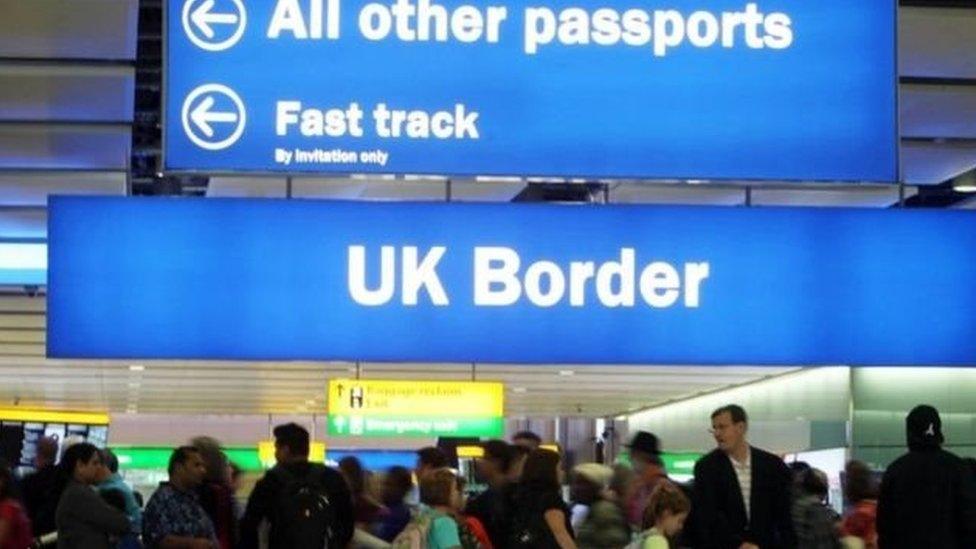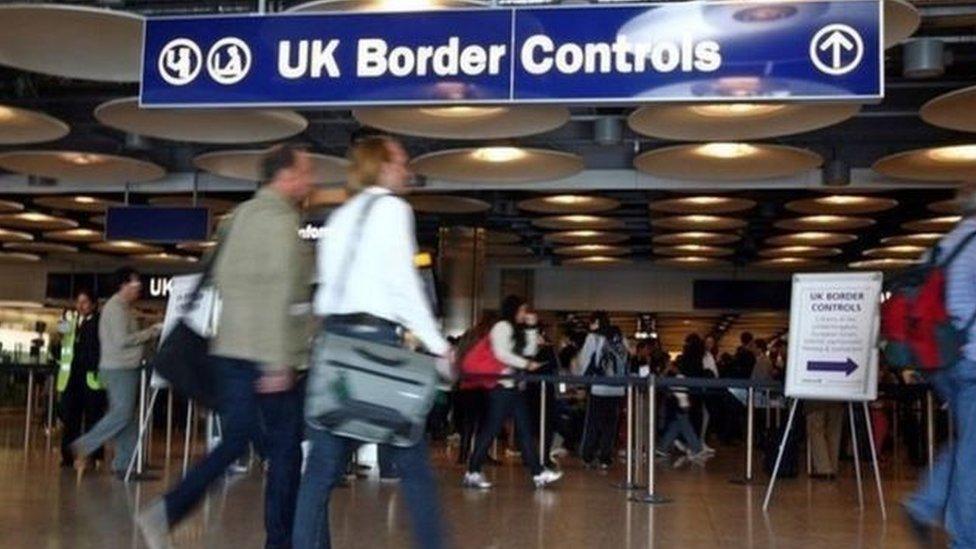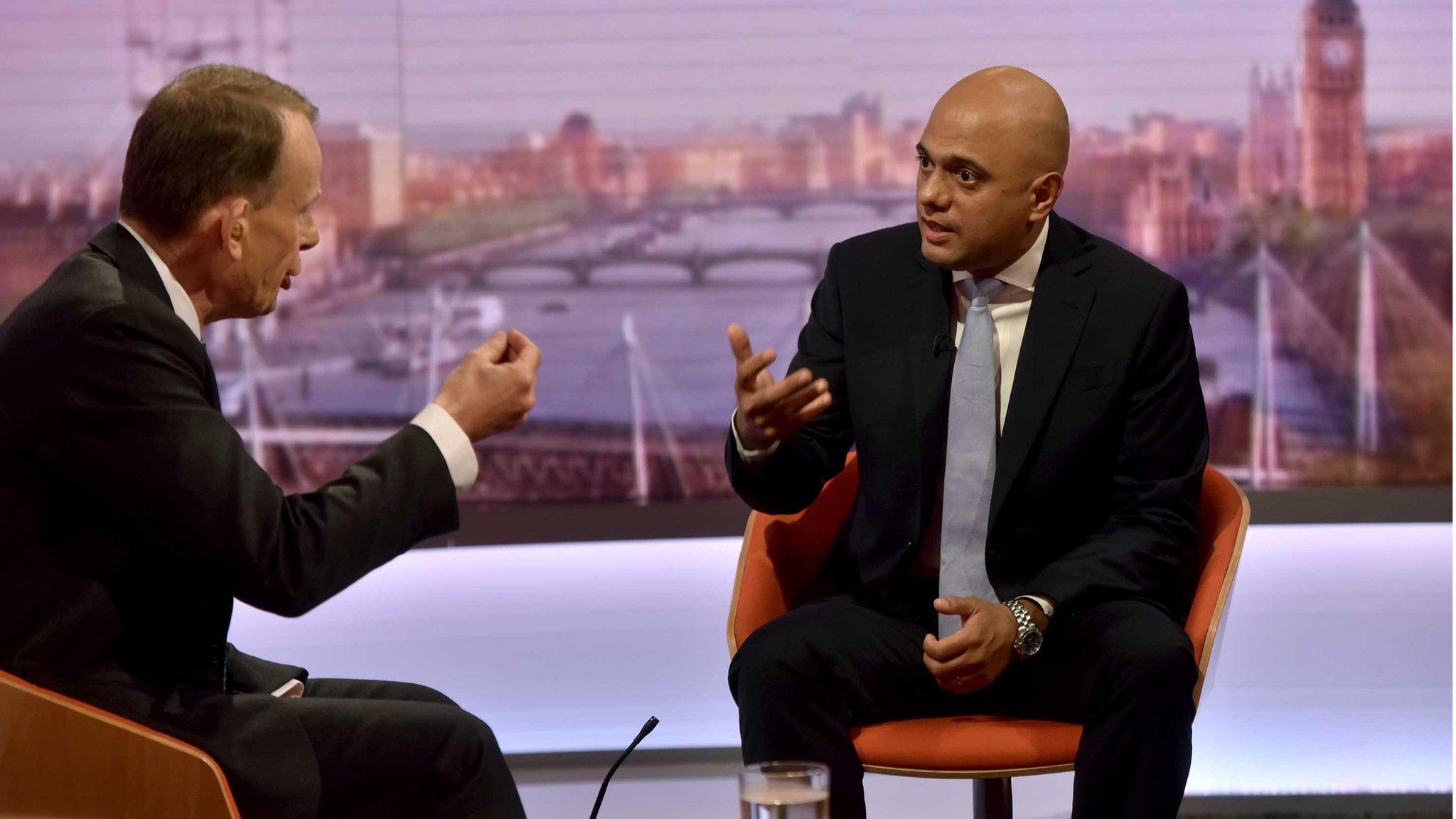The detail of Cabinet discussion on post-Brexit immigration
- Published

By BBC Political Editor Laura Kuenssberg and BBC Political Correspondent Iain Watson
For swathes of voters, immigration was the biggest question in the referendum campaign. But details of what to do about it after Brexit have been slow in coming.
But ministers took a big step towards how the future system will look, with the biggest reboot of the immigration system in decades. The Cabinet on Monday agreed in principle that after Brexit EU nationals and people from other parts of the world should face the same immigration rules if they want to come to live or work in the UK.
Ministers discussed proposals at length around the cabinet table and heard a presentation from the chair of the Migration Advisory Committee, Professor Alan Manning.
Ministers reached what sources described as a "high-level conclusion" that after Brexit people wanting to come to live or work in the UK should be subject to the same rules, wherever they are from.
There was broad agreement on that principle, and the Home Office will now spend weeks working out further details. But the precise details in a future White Paper might not emerge until after a deal is reached with the EU in November.
One insider told the BBC that the system would be based on "skills not nationality".
Although free movement for EU nationals would end, government sources suggest there could still be "light touch migration" from the EU as part of a wider trade deal but they say the EU would not get "something for nothing" and there would have to be the same access for British citizens in Europe.
They said that would not be "preferential treatment" because other future trade partners, for example the United States, could be offered the same kind of thing. In the Chequers agreement there is provision for a so-called "mobility partnerships" with the EU.
It is understood that the Business Secretary Greg Clark raised the prospect of concerns from business at a sudden change, arguing that there could be pressure for a gradual, rather than an immediate, shake-up after Brexit.
The Chancellor Philip Hammond agreed that was likely. But sources are adamant that the chancellor did not push for a delay and that there was a unanimous decision to move to a new system based on the principle of equal access. But the cabinet did accept that some sectors would need low-skilled migrants from the EU.
If there is no deal, insiders have admitted that the new migration system won't be ready and would have to be "tapered in".
EU citizens coming to the UK would have to apply for a work visa after they had arrived. Another cabinet source suggested however that no final decisions had been made. It's been suggested that the prime minister hopes to make an announcement about new immigration rules at the Tory conference next week.
- Published24 September 2018

- Published10 August 2018

- Published3 June 2018
